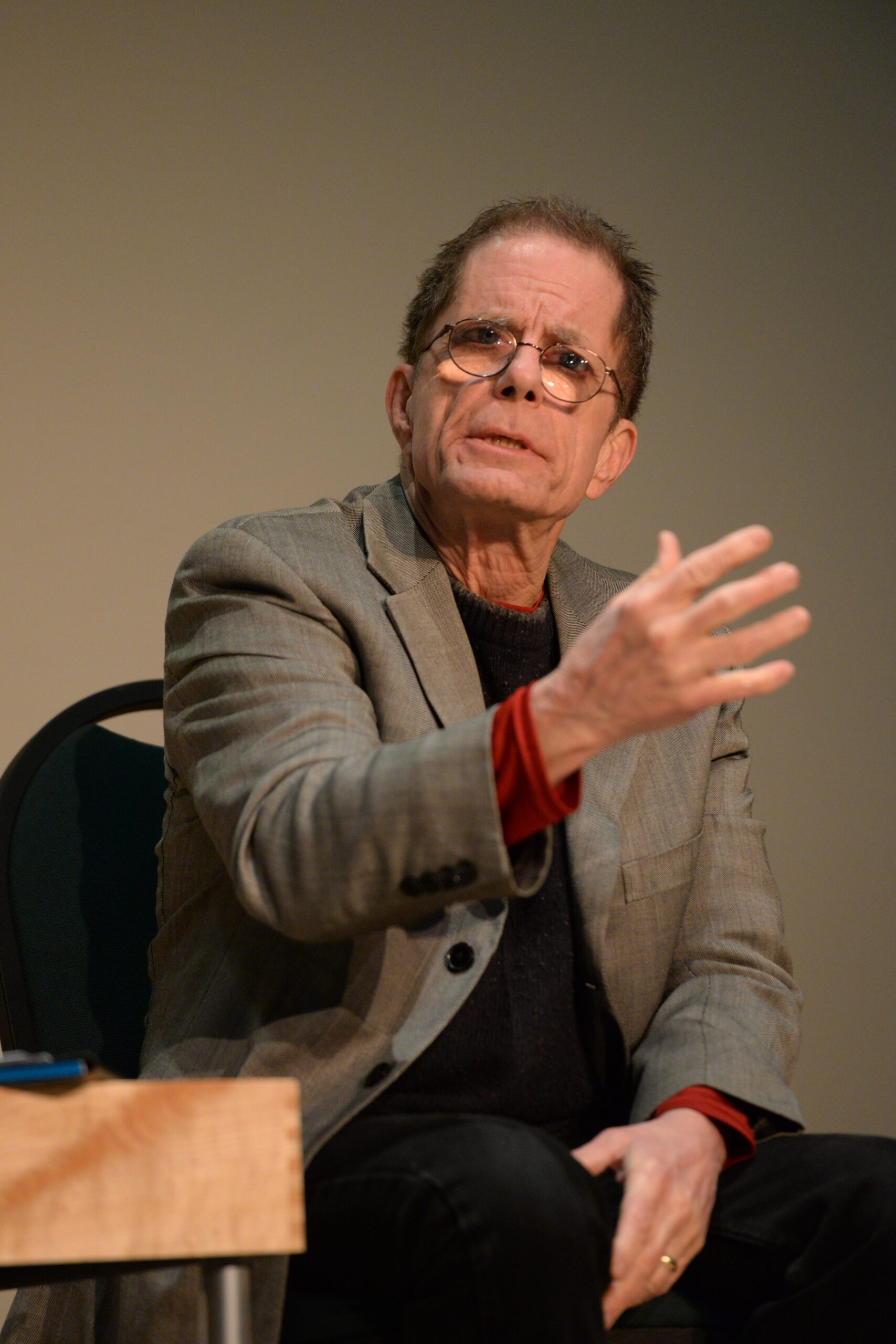The Harker Speaker Series and an audience of about 80 welcomed author and historian Dennis McNally on Jan. 14. McNally’s biography of Jack Kerouac, “Desolate Angel: Jack Kerouac, the Beat Generation, and America,” was first published in 1979. He then spent much of the 1980s and ’90s traveling with the Grateful Dead, publishing “A Long Strange Trip: The Inside History of the Grateful Dead” in 2002. Prior to the appearance, he met and conversed with a group of Harker students who are currently studying Kerouac’s work.
McNally began his talk by sharing how he came to be an authority on Kerouac. “One of the fixed rules of reading history is that to a considerable extent, you learn more about the time the book was written than you necessarily do about its subject,” he said.
Although McNally did not experience the 1960s counterculture up close, he held a fascination with the period and the many cultural changes it brought. Upon arriving at graduate school in the early ’70s, he quickly became bored with the typical graduate student’s routine of “learn this, regurgitate that and so forth.” He decided to choose his dissertation topic early, and because the ’60s were too recent, settled on the Beat Generation.
“What came to fascinate me about Kerouac … is that he did something incredibly noble,” said McNally. Having published his first novel to some critical success in 1951, Kerouac then set out to write something he believed would never be published. Those writings would later become his seminal 1957 novel “On the Road.”
That novel, McNally said, caused an uproar in American culture because it represented a growing challenge to the status quo. “The status quo social life of America in 1957 was fixed and as rigid and as boring as really any time in American history,” McNally observed. Massive disruptions of the previous decades, including the Great Depression and World War II, had led Americans to treasure this stability.
Juvenile delinquency, McNally argued, was a significant concern for many Americans, and the popularity of “On the Road” only exacerbated those fears. The book subsequently became popular with many influential figures of the 1960s, including Bob Dylan and Jerry Garcia.
Funnily enough, none of this may have happened had the famously grumpy New York Times book reviewer Orville Prescott not been on vacation when “On the Road” was published. A writer named Gilbert Millstein was assigned to review the book, which he praised, giving Kerouac his first big boost into the limelight. “Sales took off and never stopped,” McNally recalled.
“’On the Road’ also brought fame and notoriety to the so-called ‘beat generation,'” McNally continued, “which shunned the conformism that dominated so much of American culture at the time. [Kerouac] saw that, and I would argue that it was a demand for a spiritual regeneration of what had become a very boring and conformist and utterly consumer-addicted country.”
Critics of Kerouac mistook this message for a call to violence, which McNally remarked “says more about the critics than it does about Kerouac.”
Following the talk, McNally took questions from the audience, discussing such topics as the beat movement’s influence on the San Francisco counterculture and his thoughts on the future generation of writers.
